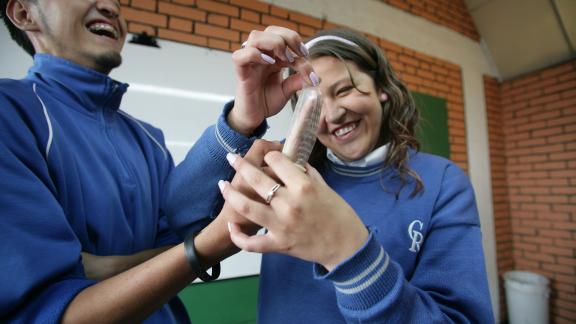Mikaela Hildebrand,Senior Policy Adviser - for Sexual and reproductive health and rights, from IPPF's Swedish Member Association writes a short reflection on the High Level Meeting on AIDS, published in the Lancet this week.
Negotiators at #UN choose evidence over ignorance: choose #sexed over#abstinence in #AIDS Declaration https://t.co/cHEEyxOZw9
— RFSU (@RFSU) August 16, 2016
"In June 2016 I took part in the 2016 United Nations General Assembly High Level Meeting on AIDS as part of the Swedish Delegation.
As RFSU, the Swedish Association for Sexuality Education and IPPF MA, together with many other committed organisations, we had followed the negotiations for a good few months. We had focused our advocacy on comprehensive sexuality education, and we knew the oppositions would be tough.
We needed a political declaration that delivered a policy commitment to evidence informed programmes to advance comprehensive sexual and reproductive health and rights, comprehensive sexuality education included, to re-shape HIV prevention efforts.
Much was at stake. Comprehensive knowledge about correct and consistent HIV prevention remains appallingly low, and has stalled over the past 15 years. New HIV infections have only dropped about 8% from 2010 to 2014 among young people and adults, and there still are some 2000 new HIV infections among young people every day.
While the assessment of the outcome document has been rather polarized with some seeing it as a failure while others hail it as a great success, when it comes to comprehensive sexuality education, the outcome document all but mentions the concept. Paragraph 62 (c) reads:
Commit to accelerate efforts to scale up scientifically accurate age- appropriate comprehensive education, relevant to cultural contexts, that provides adolescent girls and boys and young women and men, in and out of school, consistent with their evolving capacities, with information on sexual and reproductive health and HIV prevention, gender equality and women’s empowerment, human rights, physical, psychological and pubertal development and power in relationships between women and men, to enable them to build self- esteem, informed decision-making, communication and risk reduction skills and develop respectful relationships, in full partnership with young persons, parents, legal guardians, caregivers, educators and health-care providers, in order to enable them to protect themselves from HIV infection;
While the word sexualty is missing, all the core elements of comprehensive sexuality education are there. However the most important thing, are the two missing words: abstinence and fidelity.
This small omission, is infact a hard won major gain from the negotiations and signals a much needed shift in HIV prevention from dogma to evidence.
On the last day of the meeting, when the negotiations had been sealed and the Political Declaration adopted, I had a conversation with Kent Buse, chief of Strategy and Policy Directions at UNAIDS on the the importance of these missing words. We decided it needed highlighting.
So together with Sarah Hawkes, Professor at University College London, we wrote a commentary that was published today in the Lancet Global Health, to make sure that the removal of these two concepts from the toolbox of HIV prevention, at least at a global policy level, does not go unnoticed.
Now we need to translate this policy commitment to action through follow up at country level and challenge outdated national frameworks.
The commentary outlines the following four point policy action agenda:
-
Update country policy frameworks and abandon abstinence-based and fidelity-based HIV prevention programmes, in consultation with technical agencies
-
Develop comprehensive sexuality education curricula that include addressing gender-power dynamics to deliver on the sexual health and gender equality targets of the 2030 Agenda for Sustainable Development, and strengthen capacity of teachers to deliver it
-
Work with teachers' unions, parent associations, and traditional and community leaders to shift community perspectives on comprehensive sexuality education and the delivery of comprehensive sexual and reproductive health programmes in and out of schools
-
Support advocates, including youth groups, to hold their governments accountable for international commitments made, including in the Political Declaration on HIV and AIDS"
You can read the full commentary here: http://www.thelancet.com/journals/langlo/article/PIIS2214-109X(16)30138-3/fulltext
when
Blog Series
IPPF LIVE
Subject
HIV and STIs, Comprehensive Sex Education








